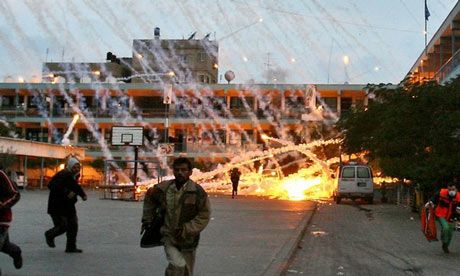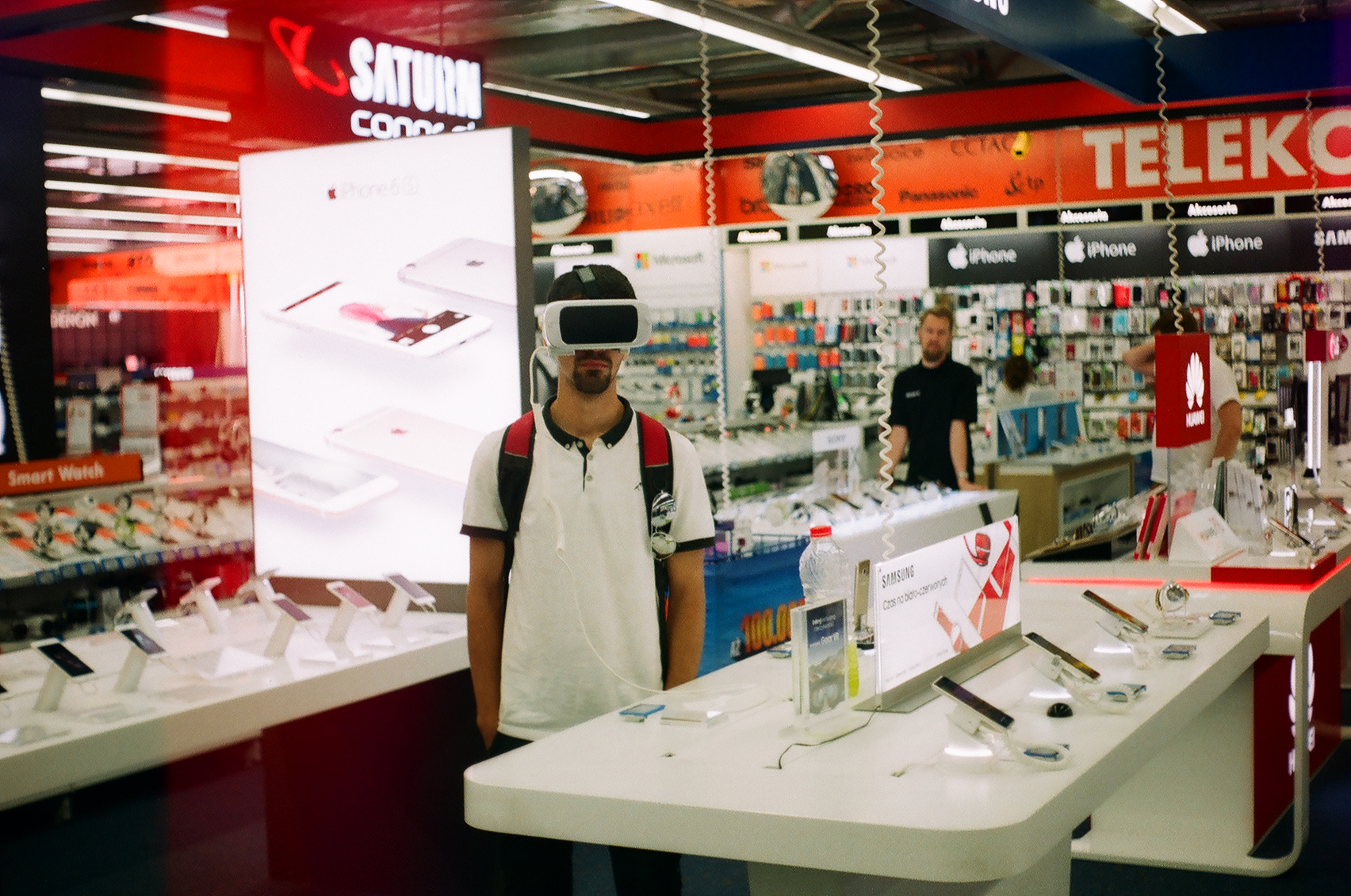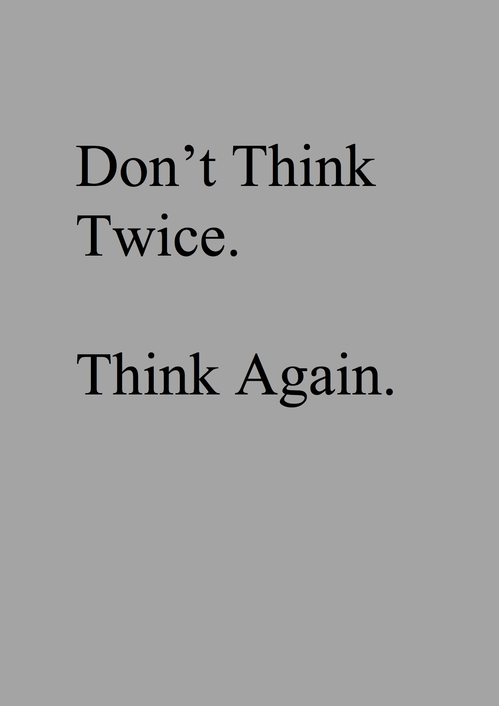To become disillusioned, like thinking twice, can be understood somewhat negatively. ‘I am disillusioned with the rhetoric’, ‘I am disillusioned by politics’, ‘I am disillusioned by my work’, ‘I am disillusioned by the reality of life’. AHA! The key. You cannot be disillusioned by the reality of life if the reality of that life is based on virtuality. There is no need to feel bad about it. Bring on the disillusionment, bring forth the rift upon which we hover with our ‘Oculuses/Oculi/Oculism’. Bring me the head of illusionment, I want disillusionment, now! Vive la disillusion!
How do we resolve the world for ourselves in a society dominated by images, news and the mediascpae which takes over and dominates almost the entirety of our perception? Where is the, and how do we find, the time to begin processing this information and coming to any kind of resolution? Rather than thinking twice, perhaps we should think again. Something like a reprocessing, and reinterpreting. It is not about doubt, as thinking twice might be perceived. This thinking again is about taking a next step, take it on one more step; complexify and critique.
But everything moves so fast, everything is so sudden that as soon as its happened its over. This might sound like an obvious point. But today the longevity of the newscape and histrionics is contradictory. We are met both by a rapid-fire ‘breaking news’ events which have barely begun to unfold before there is a complex tapestry of comment, commentary and trolling. This tapestry, existing as it does on the infinite broadness, unforgetting and unforgiving web, (web of lies, web of death, web of life?), builds up to a critical level, one that is so colossal it can only exist and pile up in virtual space.
It matters a hell of a lot, that's what it matters. When Indian clothes brands call themselves Hitler, when east Asian populaces revere the same, the erasure of history, the forgetting of reality can, and will, only lead somewhere catastrophic. The problem though does not, and cannot lay on this narrow and easily remedied fault line. The problem is compounded and multiplied in our probable inability and possible unwillingness to record, understand or even perceive the reality of the present. If I can't see you, you can't see me, a child's game spent covering the eyes to bring about apparent invisibility. But in truth it can only bring about self-denial, laughter, ridicule, disillusionment, or even death. It is only by removing the shields to our perception that we can cognize what is real.
Today we read about living in a time of ‘post-truth’. But can we really say for sure we've ever lived in a period of prevalent truth? Or ‘truthism’, as no doubt it would end up being referred to, if it existed. In a world where images of dead bodies in Iraq can be swapped and repurposed as images of dead bodies in Gaza, what place truth? What use reality? What harm in the virtual? If said image represents the essence of truth, albeit lacking the reality of truth, then what does it matter?





